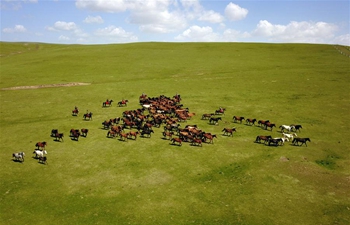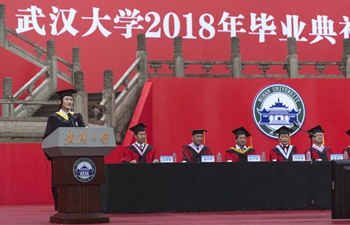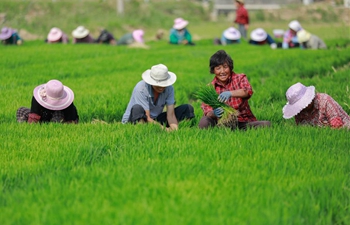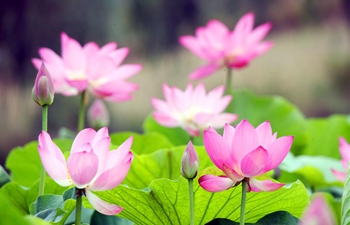FUZHOU, June 23 (Xinhua) -- Wang Mingjiang was struggling to make ends meet until four years ago when he joined a planting program to become a contract tea grower.
This year, the farmer in Xiadang village in southeast China's Fujian Province is expected to make more than 30,000 yuan (4,616 U.S. dollars), a handsome income for villagers in the mountainous region.
In 2017, the annual per capita income of Xiadang almost tripled from the amount in 2014. All 31 impoverished households in the village have been lifted out of poverty.
The tea planting program that changed the life of Wang and his villagers was initiated in 2014 by local officials to integrate individual growers and standardizing the planting process.
Instead of selling tea, the village offered 40 hectares of tea plantation to rent for companies and individuals around the country.
For 20,000 yuan, customers can rent a small plot of tea for a year, and get 50 kilograms of tea in return.
The village also set up a company to manage manufacturing and sales. Both the management team and the villagers are its shareholders.
To ensure food safety, only organic fertilizers and pesticides are allowed. Through dozens of networked cameras, customers can monitor the whole process of tea production from their cell phones.
"Customers feel more confident about the quality of our products as they can monitor and track the process from planting to shipping in real time," said village Party Chief Wang Mingzu.
The new system proved popular. Well over half the tea plantation has been rented, turning locals in 128 households into contract growers.
The program also helped drive the price of wet tea leaves up from 4 to 20 yuan per kilogram last year, leading to large increases in profits.
Besides managing the tea business, the village company also branched out to selling local specialties online.
"Our sales have reached 11.56 million yuan since we started operating online last August," said Fan Chunyue, manager of the e-commerce arm of the company.

















